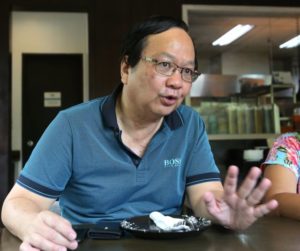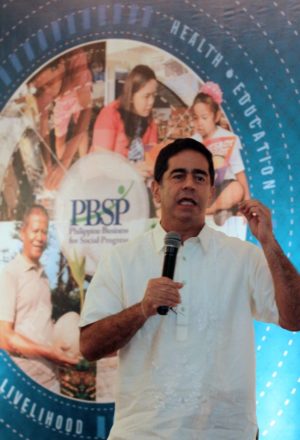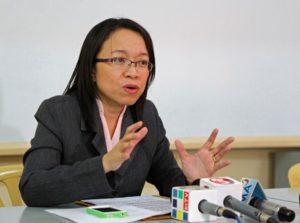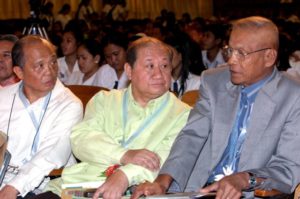Draft Charter elicits concern

While supportive of the idea of a shift to federalism, some Cebu business leaders are wary of how it is going to be done.
Cebu Chamber of Commerce and Industry (CCCI) President Antonio Chiu said safeguards must be put in place to ensure that national and local interests are protected with the changes expected in a federal form of government.
“Federalism is certainly a good system of government, but the key question here is: are we prepared for it and are there enough safeguards against abuses such as political dynasties,” he said.
Cebu Business Club (CBC) President Gordon Alan “Dondi” Joseph, on the other hand, said many businessmen also feel that federalism will be too expensive “when simple decentralization or devolution of authority to the regions will solve many of the
issues.”
Approved version
The concerns of the business sector come with the recent approval of the Resolution of Both House (RBH) No. 15, which was approved by the House of Representatives last Tuesday.
The approved version of the charter change did not just allow for a presidential-bicameral-federal system of government but also the lifting of term limits.
The approved version also does not have provisions against political dynasties. It also gives Congress the power to allow foreign ownership of land, educational institutions and media companies, and the liberalization of public utilities, among others.
Political dynasties
Joseph also highlighted the issue of political dynasties, saying, “There are good political dynasties and there are self-serving dynasties. Under federalism, and with our weak electoral system, it may simply become an issue of democracy controlled by the dynasty with the most money.”
The lack of an anti-political dynasty provision and the removal of term limits for senators and congressmen is also a cause of concern.
University of San Carlos (USC) School of Law Dean Joan Largo said, “That is something that has to be reconsidered. We haven’t really opened up the political system to everyone. Without an anti-dynasty provision in place, we run the risk of ultimately putting in place for a lifetime kani nga mga traditional politicians.”
Veteran lawyer Democrito Barcenas said the “hasty” passage of RBH no. 15 is the latest treachery of the congress to the Filipinos.
Barcenas, for his part, said the passage of RBH no. 15 is a desperate move of those seeking a longer term of office.
“I condemn this latest act of treachery on the part of the Lower House which is dominated by the super majority that is composed of super opportunities,” he said.
Media ownership
Barcenas, meanwhile, disagreed with allowing foreign ownership of media.
“I am not in favor of that because the media is very important in the shaping of public opinion and it should be reserved only for Filipinos. I do not want foreigners to meddle with the formation of public opinion because naturally, they will serve their own purpose over the interest of the Filipino people,” Barcenas told Cebu Daily News.
Largo said it might be timely to review the provisions for the media industry.
“Media is an important industry. That is why it was 100 percent Filipinized. But there are changes na man gud,” Largo said.
“Print media would be generally read in the Philippines pero online na gani, if we continue the Filipinization requirement, it would put a disadvantage to those who are here compared to those who are based abroad but are read here in the Philippines,” she added.
Largo said she is not in favor of ultimately opening media ownership to foreigners. She said some platforms may be viable for partnership with foreign corporations in order to level the playing field between local media practitioners and international media.
Foreign ownership
On the issue of foreign ownership, CCCI’s Chiu said that safeguards must also be put in place by government.
“Allowing foreign ownership of land, educational institutions, media, and liberalization of utilities is certainly the way to go from the economic point of view but safeguards to protect our national interest should also be in place before we allow this to happen,” he said.
Joseph, on the other hand, said that while this kind of policy can spur more foreign direct investments (FDI), there are many other hindrances to this that need to be address by government.
He said that even if there will be more foreign investors coming in, they will still have to contend with problems on the ground.
These include non-ease of doing business here in spite of laws and transparency requirements, a weak judicial system, and increasing taxes, among others, Joseph added.
Disclaimer: The comments uploaded on this site do not necessarily represent or reflect the views of management and owner of Cebudailynews. We reserve the right to exclude comments that we deem to be inconsistent with our editorial standards.



